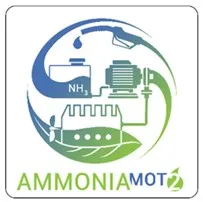The reduction of greenhouse gas emissions in the maritime sector to net zero is to be achieved by 2050 according to the goals of the International Maritime Organization (IMO). Achieving these goals makes the use of alternative carbon-free fuels attractive. Ammonia has been identified as one such fuel. The previous project AmmoniaMot completed extensive fundamental research into physical and chemical processes of piloted diffusion combustion through numerical and experimental means.
AmmoniaMot2 is intended to drive forward the development of a full demonstrator engine. The Assistant Professorship of Sustainable Future Mobility is going to carry out the advanced development of the 3D CFD simulation models. In addition to the combustion process mentioned above, the application of a piloted premixed combustion process will be investigated numerically.
Furthermore, the prediction of pollutant emissions during dual-fuel combustion will be improved. For this purpose, suitable reaction mechanisms will be generated and investigated to enable an efficient numerical simulation and reduce nitrogen-based pollutants through optimized combustion processes.
In addition to the Assistant Professorship of Sustainable Future Mobility, the following industrial partners and research institutions are involved in the project: MAN Energy Solutions SE, WTZ Roßlau gGmbH, Woodward L'Orange GmbH, Neptun Ship Design GmbH, the University of Rostock (LKV), GenSys GmbH and MNR GmbH.
